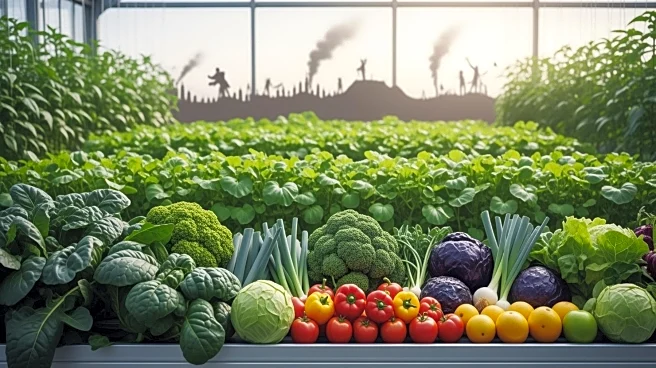What's Happening?
Canadian vegetable processor Nortera is investing C$28 million to expand its Saint-Denis-sur-Richelieu facility in Quebec. This move aims to address food sovereignty concerns amid economic uncertainty, potential tariffs, and rising import competition.
The investment will increase the facility's capacity from six million to 10.6 million case-equivalents, specializing in canning vegetables and legumes, and preparing soups and sauces. As part of this initiative, Nortera will close its Saint-Césaire plant, resulting in the creation of 70 permanent roles at the expanded facility but the loss of around 100 positions at the closing plant. Nortera operates 13 plants across Canada and the U.S., processing over 400,000 tonnes of vegetables annually with 540 farming partners, employing nearly 3,000 people.
Why It's Important?
The investment by Nortera is significant as it aims to strengthen the competitiveness of the agricultural sector in Canada, providing essential economic benefits to rural communities. By focusing on food sovereignty, Nortera is addressing the challenges posed by economic uncertainties and import competition, which are critical for maintaining local agricultural production. This move could set a precedent for other companies in the agri-food sector to prioritize local production and sustainability, potentially influencing policy decisions and market dynamics in the region.
What's Next?
Nortera's expansion is expected to be completed by late January next year, with the closure of the Saint-Césaire plant. The company will likely focus on integrating new technologies and processes at the Saint-Denis-sur-Richelieu facility to enhance production efficiency. Stakeholders, including local communities and agricultural partners, may respond positively to the increased job opportunities and economic benefits. However, the loss of jobs at the Saint-Césaire plant could prompt discussions on workforce transition and support measures.
Beyond the Headlines
The emphasis on food sovereignty by Nortera highlights a broader trend towards sustainable and locally-focused agricultural practices. This approach not only supports economic resilience but also aligns with global efforts to reduce dependency on imports and enhance food security. The investment reflects a strategic shift in the agri-food industry, prioritizing long-term sustainability and community engagement over short-term gains.
















